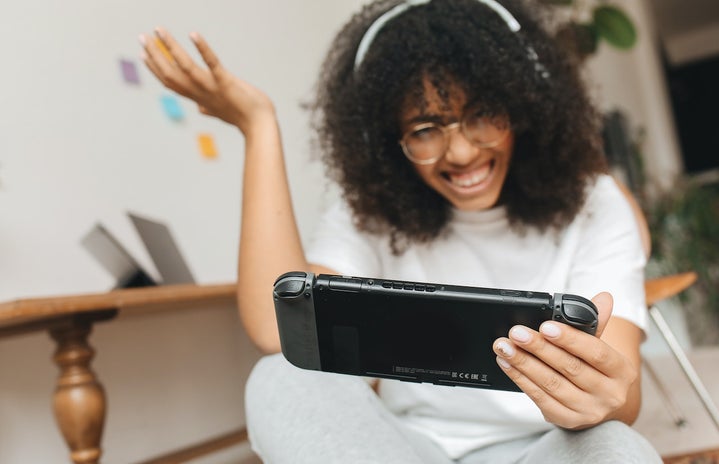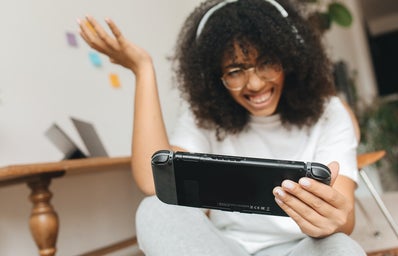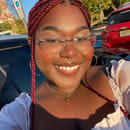Gamer culture is known to be a male-dominated entertainment industry from game development to marketing and overall plot development within Triple A games. For my non-gamer girlies, Triple A refers to “high-budget, high-profile games that are typically produced and distributed by large, well-known publishers. These games often rank as “blockbusters” due to their extreme popularity.”
Decades have passed where women were at a loss on where they fit into that mechanism–games marketed towards women tend to reiterate gender-role stereotypes and interests such as: cooking, farming, fashion, and romance. There is nothing wrong with those genres—in fact those are some of my favorites, but I think it is important to call out the stereotyped perception of “feminine” interest especially when that makes it difficult to insert ourselves into a more male-dominated circle.
One of the more interesting phenomena I noticed, following the release of Call of Duty: Modern Warfare II (MWII) on October 28, 2022, was that there was a sudden increase in women having an interest in the game. This is one of the Triple A titles known for being marketed towards men due to the violence and overall intensity of the game. Thanks to some fan editors, MWII gained a lot of attention due to the return of popular character Simon “Ghost” Riley. Ghost was known as a fan favorite before his sudden popularity on TikTok, but there was a popular trending sound of some of his voice lines and game clips being circulated. I certainly was enjoying this mysterious masked man with his smooth voice and Manchester accent, however, when I noticed Activision themselves promoting the (mobile) game through fanservice, I felt a little…complicated, to say the least.
Considering the plots from popular games, those of which are majority Triple A games, it is important to acknowledge the way male power fantasies are promoted through their characters and how much that differs from what women desire. Speaking plainly about desire, male characters, those aimed at a cisgender, heterosexual male audience, are often: tall, dark and handsome.
These characters are strong, mentally and physically and are often in peak body condition. They are either overly cold and detached or overly charismatic. Naturally, they have to be good with women. Naturally, they have to be a leader, or an alpha, or whatever other hyper-masculine term translates to dominance.
It’s in their nature to be this way, of course (this is sarcasm).
As a full disclaimer, these traits are a generalization of attractiveness, but I mention it this way as the way these are shown in media is through a generalized lens. For example, in this video essay, Hbomberguy does an excellent job of exploring how easily desirability impacts the viewership and overall perception of a game. He goes into how the sexualization of women becomes standard, so much so that the expectation becomes scantily clad, demure women, even those with more “bold” personalities, and never men in the same role.
But what is it that women find attractive in fictional men then if they aren’t digesting sexualized men in sexy clothes on a regular basis?
Interestingly enough, while the model—tall, dark, and handsome—that is projected on male characters is similar to what women are trained to find attractive, there is still a variance to that desirability. Using Ghost as an example, a lot of women have said he is attractive because of his voice, for one, but also it’s because he’s babygirl.
Obviously.
Women find his stoicism endearing and almost a sign of awkwardness, rather than focusing on his detachment from emotions, the thought process is that he is struggling to process emotion due to his trauma, not that he doesn’t feel at all. It’s awkward for him to show this outright. This makes him cute. I agree with that sentiment entirely.
His physical build is still praised and that is shown through each velocity edit I have seen (and saved) on my for-you-page, but since there exists no other method of fanservice besides what satisfies men, it was interesting to see Activision have that scene of Ghost rolling his muscles out in a suggestive manner or to see him flexing his arms at the ending screen–which is uncharacteristic of him to do so.
What I am suggesting is that since video game marketing teams have spent so much time giving men fanservice, it makes complete sense to me that they would use the same method in an attempt to draw the interest of women, especially after seeing how he went viral on TikTok. Regardless, I think what made this a complicated situation for me, personally, is that in order to sexualize this character, they had to abandon some canon personality traits. I recognize the mobile game is different, but I think the point still remains considering that it’s the same character no matter which platform. Men appeared to think the same since there was a large group of them suggesting that women are “ruining his character” for making edits and fanart–especially the sexually charged ones.
I think it has tamed down now that the game has been out for a while, but I really think this situation shows how little companies like this understand what it is that women find attractive. Having sexy characters is one thing, but resorting to that for promotion—to keep the character and the game trending—only adds to the issue that is the over sexualization of women in games.


